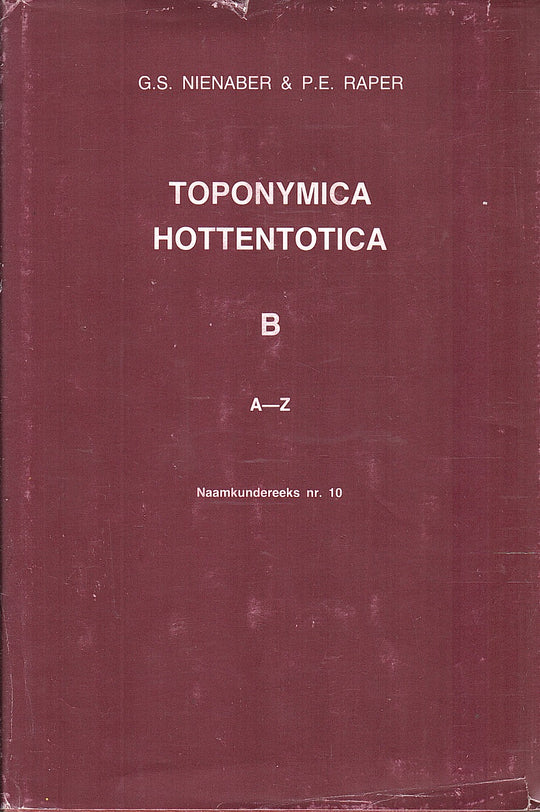eng
We treated the name in TH a * 443-444 and mentioned two statements we got. Those of the farm owner 1974 were initially reduced, for clear reasons ('dirty pillowcase'). That of the driver M Christian 1974 now understands us better after we learned the conception of Mr Arndt and his team, informed above. Christian's 'It believes the water stood in the Klipspruit, which holds water for a long time after it has arrived.' He does not mention but declared Nama ǀǀ Garu- = 'Das Wasserbecken Im Fels, the laundry (in kind)' (Kr.- R. 1969 NW 84), a bag. Christianian also considered Goibib as a distortion of the name, just like Arndt. ǀǀ Garu- also means a skin pack, 'Der Ranzen, der Beutel' (Kr.- 84), who made Arndt and his group to the ground of their statement, at ǀ O = Stink (Kr.- R. 315) Plus ǀǀ Garu- = (Skin) bag. It again has a connection with 'dirty pillowcase', where 'pillowcase' is associate with '(skin) bag', and 'dirty' with 'stink'. Also, the old form of name is in the verdict Some of the whites are unrecognizable, such that some, such as Mr Apriels and his team, equate the current form Goi-Bib with Nama Gui- = Melkbos (Rest 42). The degree of 'mutilation' is great. It is possible that our spokesmen over ǀ 0- As far as this may be the case, Goibib remains unexplained in terms of 'stinkack'. On old maps, we don't name tea, at least not before 1911, and then it's already known as Goibib. The farm No. 96, to the highway located west of the Great Karas Mountains, got its name from the Goibib River to be west and received by the Gab, a tributary of the Fish River. The -b of the ml. EKV. It's here that the name is that of a river, which must also be the starting point for the appointment of the farm.
afr
Ons het die naam in TH A* 443-444 behandel en twee verklarings genoem wat ons toe gekry het. Die van die plaaseienaar 1974 is aanvanklik ver- werp, om duidelike redes ('Vuil kussingsloop'). Die van die drywer M Christian 1974 verstaan ons nou beter nadat ons die opvatting van mnr Arndt en sy span verneem het, hierbo meegedeel. Christian se 'Dit meen die water wat gestaan het in die klipspruit, wat water hou 'n lang tyd na dit gereent het'. Hy noem nie maar verklaar daarmee Nama ǀǀgaru- = 'das Wasserbecken im Fels, die Wasserbank (in natura)' (Kr.-R. 1969 NW 84), ’n sak. Ook Christian beskou Goibib moontlik as 'n verdraaiing van die naam, net soos Arndt-hulle. ǀǀGaru- beteken ook 'n velsakkie, 'der Ranzen, der Beutel' (Kr.-R. 84), wat Arndt en sy groep tot grond- slag van hulle verklaring geneem het, by ǀo = stink (Kr.-R. 315) plus ǀǀgaru- = (vel)sak. Dit weer het 'n verband met 'Vuil kussingsloop', waar 'kussingsloop' assosieerbaar is met '(vel)sak', en 'vuil' met 'stink'.Hoe ook al, die ou vorm van die naam is dan in die uitspraak van die Blankes onherkenbaar vervorm, sodanig dat sommige, soos mnr Apriels en sy span, die huidige vorm Goi-bib gelykstel met Nama gui- = melkbos (Rust 42). Die graad van 'verminking' is groot. Dit is moontlik dat ons segsmanne oor ǀ0-ǀǀgarub die vorm Goibib nie as ’n vervorming sien nie, maar dat hulle ǀ0-ǀǀgarub sien as ’n alternatiewe naam van Goibib. In soverre as dit die geval mag wees, bly Goibib as sodanig nog onverklaar in terme van 'Stinksak'. Op ou kaarte kom ons die naam nie tee nie, altans nie voor 1911 nie, en dan is dit reeds bekend as Goibib. Die plaas nr 96, aan die grootpad geleë wes van die Groot Karasberge, het sy naam gekry van die Goibibrivier wat weswaarts neig en ontvang word deur die Gab, ’n sytak van die Visrivier. Die -b van die ml. ekv. se hier dat die naam die van ’n rivier is, wat ook die beginpunt vir die benoeming van die plaas moet wees.




